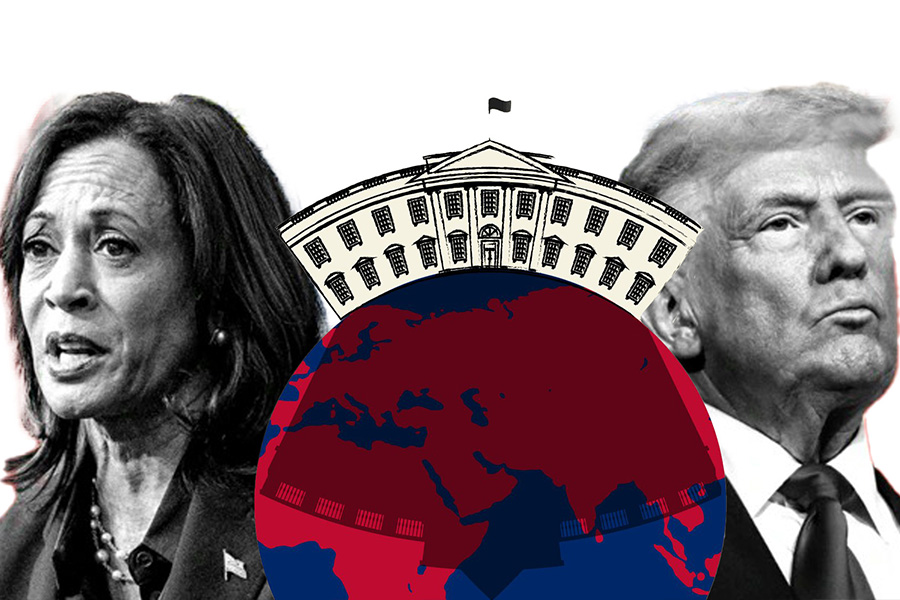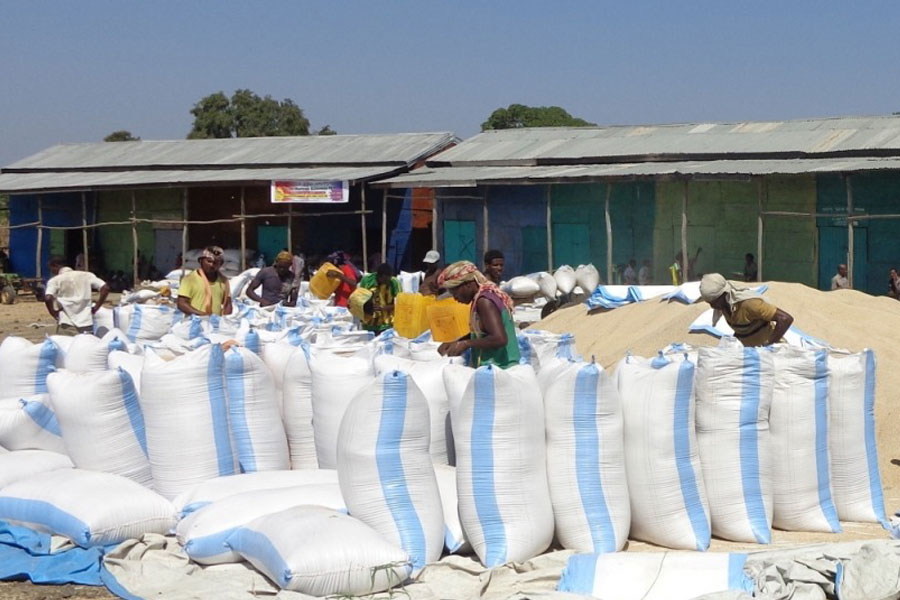
Fortune News | Dec 19,2020
I found myself deeply engrossed in an interview on local media. The guest was Seble Hailu (PhD), a psychologist known for her efforts in addressing trauma. The host set a sombre tone from the outset, preparing viewers for a thoughtful discussion on post-traumatic stress disorder (PTSD), particularly focusing on victims and firsthand witnesses of violent conflicts and crimes such as rape and homicide.
The recent conflicts, which have left many deeply scarred, served as a key case study.
I watched the interview intently, struck by how trauma—both personal and collective—is rarely discussed or addressed in Ethiopia. The interview was so compelling that I watched it again on YouTube. Growing up in Addis Abeba, I was fortunate to avoid direct exposure to conflict, yet the shadows of war were never far. In the early 1980s, Ethiopian TV was flooded with footage of battles, especially in the east. Helmeted soldiers in trenches, convoys of military vehicles, and the annual parade of military hardware at Meskel Square became familiar sights. One radio broadcast I recall vividly was of Tamra Tor, narrated by the legendary actor Wogayehu Nigatu. The chilling storytelling left an indelible mark on my young mind.
By the mid-1980s, the situation worsened as the conflict in the north escalated, dragging on until the early 1990s. I remember watching injured soldiers on city buses, their bodies severed by war. As their numbers grew, it was impossible not to wonder about the trauma they carried. For children in conflict zones, the normalisation of violence might create a numbing effect, perpetuating cycles of trauma.
A brief period of relative calm followed, only to be shattered by the cross-border war at the end of the 1990s, which once again left communities devastated. The 2020 conflict, however, reached an unprecedented scale, with record casualties and mass displacement. Psychologically, the toll has been brutal. In the four decades of my life, it is hard to recall a time when the spectre of war did not haunt the region. And yet, little to nothing has been done to address the long-lasting psychological wounds left in its wake.
PTSD can emerge after experiencing or witnessing a traumatic event, with symptoms including flashbacks, distressing dreams, and heightened anxiety. It is commonly seen in victims of war, violent crime, and physical assault. However, the psychological damage that lingers long after the dust settles is rarely accounted for in restorative efforts. The emphasis is often placed on providing aid, resettlement, and other tangible forms of recovery, with little regard for the mental well-being of those who have endured life-shattering experiences.
The untreated psychological scars can perpetuate cycles of violence, passing trauma from one generation to the next. The need for comprehensive psychological recovery at both the individual and societal levels cannot be overstated, especially if we are to build a stable future for the next generation. Unfortunately, Ethiopia's psychological services are woefully inadequate, with a handful of professionals stretched far beyond their capacity. Even in more developed countries, dealing with PTSD is a challenge. A striking example comes from the U.S., where a report from Brown University’s Costs of War project reveals that deaths by suicide among post-9/11 U.S. service members exceed combat fatalities fourfold. This highlights the invisible yet devastating consequences of psychological trauma.
In countries like Ethiopia, Iraq, and Afghanistan, where cycles of conflict are commonplace, the scale of unaddressed PTSD is unimaginable. Films like "Heaven & Earth" offer a glimpse into the mental torment faced by soldiers returning from war. In the movie, Tommy Lee Jones portrays a veteran haunted by his wartime experiences, unable to find peace even after returning home. The film ends tragically, underscoring how deeply trauma can affect those who endure violence, whether as victims or perpetrators.
Rape, another violent crime often left unaddressed, leaves victims with lasting psychological scars. The case of a seven-year-old girl named Heaven, who was tragically murdered after a horrific rape, has galvanised public attention. The trauma faced by survivors is immense, and in countries like Ethiopia, where discussing such issues remains taboo, victims suffer in silence. According to studies, most rape survivors experience PTSD within two weeks of the incident, with some tragically choosing to end their own lives due to the unbearable psychological burden.
During the interview, Seble raised the crucial point that perpetrators of violence may also be suffering from trauma. Many have themselves been victims or witnesses of violence, leading them to commit atrocities. Healing, she argues, must take place at both individual and societal levels, as the two are inextricably linked. Ignoring mental health issues in favour of more “pressing” matters like politics or the economy is short-sighted. Our collective mental state must be addressed if we are to make sound decisions and move forward as a society.
As Albert Einstein famously said, “We can't solve our problems with the same thinking we used when we created them.”
The question we must ask ourselves is: "Are we psychologically healthy?"
If not, we risk perpetuating the cycles of violence and trauma that have plagued us for generations. Acknowledging the problem is the first step towards finding a solution. As the Amharic proverb goes, “One who doesn’t know they are sick can't find the cure.”
Beyond the psychological impact, studies suggest that trauma can also affect biology, with consequences for future generations. Research on survivors of the Tutsi genocide in Rwanda, as well as studies on Holocaust survivors, indicate that trauma can be passed down genetically. This underscores the urgency of addressing it not just for the current generation, but for those to come.
The interview concluded with a stark reminder: unaddressed trauma continues to eat away at the fabric of society. Conflict and violence, in various forms, seem to be a constant presence. Without a break in the cycle, a chance for peace and reflection, healing will remain elusive.
As a society, we must recognise the need to heal, both individually and collectively, through constructive dialogue and a commitment to addressing our mental health issues. Though the task is daunting, it is not insurmountable. True healing will require an all-encompassing effort, from government institutions to individuals, to engage in meaningful reflection and action. The future depends on it.
PUBLISHED ON
Sep 14,2024 [ VOL
25 , NO
1272]


Fortune News | Dec 19,2020

View From Arada | Nov 02,2024

Agenda | May 13,2023

Sunday with Eden | Feb 11,2023

Sunday with Eden | Jun 24,2023

Fortune News | Nov 14,2020

Commentaries | Feb 10,2024

Radar | Dec 19,2020

Sunday with Eden | Mar 12,2022

Editorial | Nov 14,2020

Dec 22 , 2024 . By TIZITA SHEWAFERAW
Charged with transforming colossal state-owned enterprises into modern and competitiv...

Aug 18 , 2024 . By AKSAH ITALO
Although predictable Yonas Zerihun's job in the ride-hailing service is not immune to...

Jul 28 , 2024 . By TIZITA SHEWAFERAW
Unhabitual, perhaps too many, Samuel Gebreyohannes, 38, used to occasionally enjoy a couple of beers at breakfast. However, he recently swit...

Jul 13 , 2024 . By AKSAH ITALO
Investors who rely on tractors, trucks, and field vehicles for commuting, transporting commodities, and f...

Oct 25 , 2025
The regulatory machinery is on overdrive. In only two years, no fewer than 35 new pro...

Oct 18 , 2025
The political establishment, notably the ruling party and its top brass, has become p...

Oct 11 , 2025
Ladislas Farago, a roving Associated Press (AP) correspondent, arrived in Ethiopia in...

Oct 4 , 2025
Eyob Tekalegn (PhD) had been in the Governor's chair for only weeks when, on Septembe...